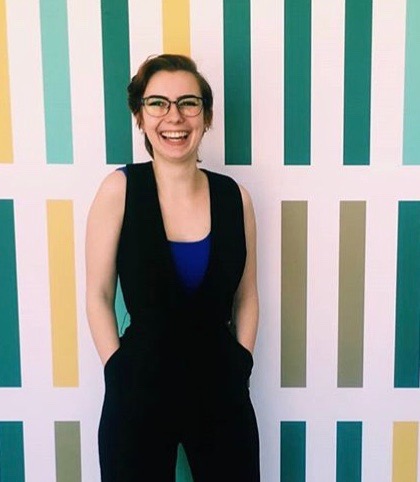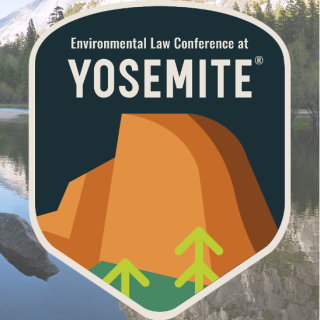
After virtually attending the 29th Annual Environmental Law Conference at Yosemite, I was surprised by how expansive the field of environmental law has become. I held the misguided perception that environmental law just meant saving trees from being demolished or trying to encourage recycling. I now realise that essentially every field of law can be seen and practiced through an environmental prospective. This article will highlight some of the work that is currently underway in California.
The conference started somewhat atypically because of COVID-19; on top of being moved away from the striking views of Half-Dome to a virtual platform, many speakers addressed the environmental concerns of the pandemic. Kip Lipper, a chief policy advisor for the California Senate, pointed out that several issues of legislation have got pushed out of the spotlight to make room for discussion and funding of COVID legislation. However, for many the pandemic has not slowed their work. Instead, COVID has highlighted the need for outdoor space and public access. The director of the Resources Legacy Fund, Alfredo Gonzalez, spoke about his work to secure and protect public access to California’s coastline. Mr Gonzalez spoke about his desire to make sure every citizen has access to California’s natural wonders, especially during a time when we are so frequently indoors. Many of California’s beaches are restricted for private access, ensuring that only the wealthy who can afford beach real estate can access the coast. This type of gatekeeping is unacceptable for the teams working to free the beaches to the general public.

Varied career path?
I am not going to recite every session in the conference, but I do want to highlight how varied a career in environmental law can be; I did not realise how many jobs there were relating to seemingly niche areas of environmental law. I attended one session centered around CERCLA, the legislation that regulates toxic waste management. Within that session, three of the speakers were all ‘CERCLA’ attorneys that worked in three completely different sectors. Ms Sylvia Quast works for the Environmental Protection Agency, bringing charges against the private sector for their use of toxic waste and working directly on cleanups. The speaker after her, Ms Davina Pujari, worked in the private sector, working on cases involving liability for CERCLA issues. Lastly, Ms Olivia Karlin spoke about her work involving clean up issues just on federally owned properties. Each of their daily careers are wildly different, despite working in a very specific sector of environmental law.
Environmental activism
On top of the typical discussions of land conservation and toxic waste management, one main theme through the conference was the connection of environmental activism to the current political climate in the United States. Jennifer Noval, the immediate past chair of the conference, spoke about how much of the current news is tied to environmental law and advocacy. She spoke about how the passing of Ruth Bader Ginsburg, a liberal Supreme Court justice, might shift the balance of the Supreme Court, which sparks concerns over future Supreme Court rulings regarding environmental litigation. Ms Noval mentioned the ongoing issues of California’s wildfire season; the issue is not just putting out the fires, but working towards prevention and clean-up. Ms Quast also brought up that the California’s division of the EPA is being used for cleanup of toxic materials leftover from the ongoing wildfires. Ms Noval also spoke about how the Black Lives Matter movement has helped bring more attention to the societal disparities in land use. Civil rights are at the heart of much of environmental advocacy.
While discussing California’s future shift towards clean energy, the needs of lower-economic status households were at the heart of the discussion. Ms Sky Stanfield highlighted that people of colour are twice as likely as white people to live in counties that have days with unhealthy ozone and particle pollution. That means they are more likely to suffer negative health effects from their air quality. Ms Stanfield was hopeful that the ongoing shift to renewable energy will have a direct and measurable effect in cleaning the air in those communities.
On the other hand, Dr Diedre Sanders highlighted her concern regarding California’s driver limitations. Encouraging individuals to drive less can have a negative effect on individuals that need to commute farther or are living inside a food desert. Lower income individuals might not be able to limit their use of motor vehicles or switch to electric vehicles soon. Ms Stanfield expressed the idea that these types of situations must be considered so that renewable energy is not only accessible for all but also addresses the existing disparages. Mr Richard Rothstein also looked at the relationship between lower income housing and health; young children in lower income areas are more likely to have asthma or suffer lead poisoning. Mr Rothstein related that environment effect into the performance levels at schools. Students who are suffering from these conditions are less likely to succeed at school. Mr Rothstein highlighted that the ongoing issues of residential segregation have an impact on the health of lower income individuals. Plans for renewable or clean energy must be plans that include counteracting the existing damage.
Environmental law is still about land conservation and renewable energy, but it is also about ensuring that those policies are realistic for all people. Speaking up for the environment goes hand in hand with speaking up for low income individuals and people of coloor who have been systematically disadvantaged. Moreover, it is a broad area of law with the potential to create change in many aspects of our daily life. I would highly recommend looking into all the possible career opportunities for someone who is passionate about the environment and the health of those around them. And if you can, I also recommend seeing Yosemite.

Thanks to Emily Wolf for this fantastic review. Emily is a third year LLB student who has experience in private business law, federal appellate law, and governmental legislative law.
She is most interested in writing public interest and advocacy pieces. Emily has been a member of the Lawbore journalist team since 2019-20, and is also Publishing Editor for the City Law Review.

